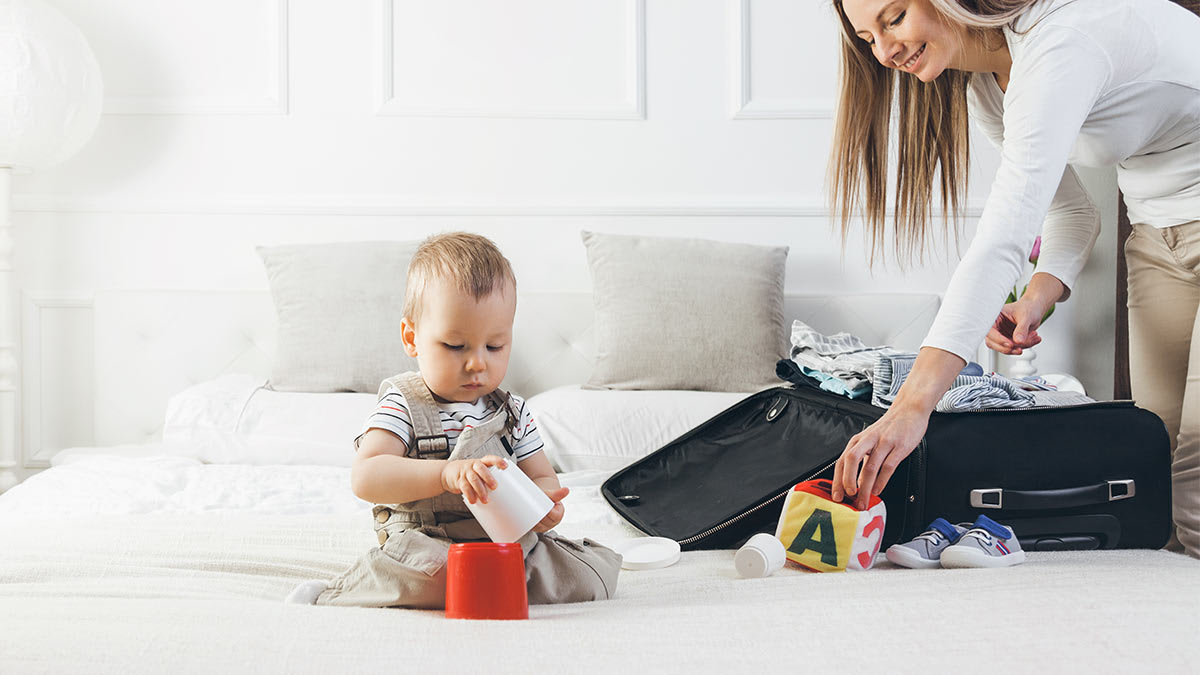According to a regulation passed in 2012 in the U.S., hotels and other “places of public accommodation that provide cribs for use of their customers or guests must provide cribs that comply with the new federal standards.” Pack and plays, however, aren’t subject to this rule, which means that it’s legal for a hotel to provide a pack and play or playard that doesn’t comply with federal regulations.
And hotels and vacation rentals don’t have to provide cribs at all. Nor do they have to provide sheets, meaning that if a hotel doesn’t provide crib bedding, and you don’t bring your own, you’re in a pickle. Unclean, unprotected crib mattresses can contain mildew, allergens, and dust and dust mites, all of which can cause health issues for babies, including respiratory distress and skin irritation. (Would you want to sleep on a hotel mattress without a sheet? No thanks!) Playards are safe without a sheet, according to Nancy Cowles, a consultant at Consumer Reports and the former executive director of the children’s safety organization Kids in Danger, but “just a little gross to think about in a hotel.”
Samantha Shain, a mom in Philadelphia, had this very experience on a recent trip to New York. “We gave them a piece of our mind” when employees at her hotel provided her baby with a pack and play without a sheet. “They told us to wrap a bed sheet around the pack and play mattress, which we did not consider to be safe. That was the time I basted [hand-sewed] the sheet with my embroidery kit.”
Nor do accommodations have to provide mattresses that are compliant with federal standards, according to Cowles. This can be quite dangerous: Mattresses and mattress pads that don’t fit snugly inside a crib or pack and play can be hazardous for babies. A baby can be trapped in the gap between the mattress and the mesh or crib bars—as Tina experienced when she stayed at a hotel that provided a crib with an ill-fitting mattress—putting them at risk of suffocation or injury. Using blankets, non-fitting sheets, or other soft padding, like a pillow, also increases an infant’s risk of suffocating.
After a long day of traveling, it’s understandable that when presented with less-than-ideal circumstances, exhausted, stressed-out caregivers will do whatever seems safest at the time. Prior to working on this story, I truly didn’t know what I would do if I showed up at a hotel that didn’t provide a crib for my baby (I’ve lucked out, apparently, and haven’t had to find out).
Better regulation of what hotels are required to provide for their infant guests would be a big step forward in ensuring that babies stay safe, whether they’re at home or on the road. In the meantime, though, there are a few things you can do to keep your little one safe if you’re traveling somewhere with unreliable sleep setups.
Source link
